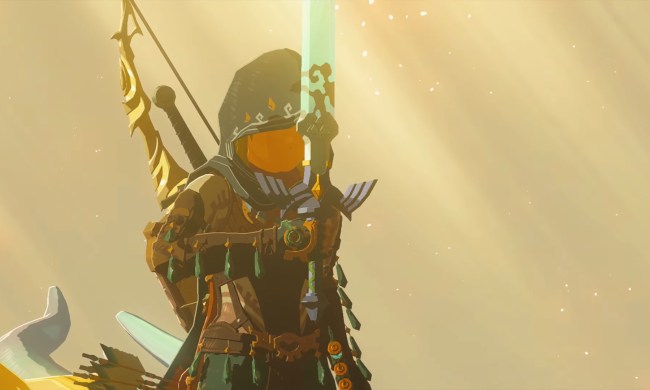A good 24 or so hours have passed since the Resident Evil 25th Anniversary livestream, and its surprise multiplayer announcement still makes no sense to me. Yet I’m not surprised. Resident Evil Re:Verse pits the franchise’s characters against each other in some sort of battle to the death. The “how” doesn’t really matter, but it’s the “why” I’m struggling to understand. After a decade of huge misfires and close calls, how is it that Capcom still has no idea how to make a Resident Evil multiplayer game work over the long term?
Missing the mark
The publishing giant’s bestselling franchise has embraced some form of multiplayer since the early days of the internet. Resident Evil Outbreak and its sequel, which centered around four civilian survivors of its signature Raccoon City zombie fiasco, made use of the PlayStation 2’s Netplay features long before the following generation popularized online multiplayer.
Since then, Capcom has rolled out several multiplayer iterations of the franchise. While it pioneered a zombie genre that others have since leveraged to birth some of the most beloved multiplayer games out there, it continues to put out mediocre takes on multiplayer trends far too late. Last year, Resident Evil Resistance, a 1-versus-4 asymmetric multiplayer survival game, began to gain traction. Capcom seemed to be caught unaware by its success, however, stifling any chance of its growth from the outset.

Players couldn’t buy the game on its own. Despite being a separate entity, it was locked behind a Resident Evil 3 purchase. Social media buzz was high the first couple of weeks, but the thousands of players it did manage to capture quickly evaporated as balance issues and slow content rollout all but proved the development team hadn’t planned for its success. It was a miscalculation on the publisher’s part, but far from its first failed attempt to make Resident Evil into a multiplayer hit.
Left for dead
What’s puzzling is that there seems to be an obvious answer to making a compelling Resident Evil multiplayer game: Left 4 Dead. Turtle Rock’s classic series is a co-op zombie shooter clearly inspired by classic George A. Romero films like Dawn of the Dead. Even without a new entry in more than 10 years, the games continue to entertain tens of thousands of players daily. Resident Evil fans could only dream of the day Capcom would leverage the iconic Raccoon City disaster storyline as a basis for its own take on the genre, melding the cooperative survival and strategy elements of Turtle Rock’s initial idea with the rich history of its own. And it did. Sort of.
Capcom tried to capitalize on the hit with Resident Evil: Operation Raccoon City, which was released to disdain from critics and players alike. The game was a clear indicator of Capcom abandoning what made the franchise so captivating in the first place. It lacked the replay value and tense charm of those it tried to emulate, but that didn’t stop the publisher from trying again with Umbrella Corps, a tactical PvPvE game in which trained troops gun down members of opposing companies fighting over scraps of research from the infamous Umbrella Corporation.

At the time, Resident Evil was battling an identity crisis: Horror brought critical acclaim, but action brought cold hard cash. It was something producer Masachika Kawata confirmed to IGN when Resident Evil 6 and Operation Raccoon City were both met with polarizing reviews despite healthy pre-orders. When talking about the potential need to reboot the franchise, he said: “Survival horror as a genre is never going to be on the same level, financially, as shooters … .”
His words carried weight back then, and the proposed reboot, Resident Evil 7, ultimately went on to sell 8.3 million units worldwide, beating out the previous two bestselling entries by around 700,000 copies apiece. The critical failure of the franchise’s action titles and the success of a return to its roots ultimately paid off, so much so that the highly anticipated sequel is set to follow the first-person horror approach that has been reviewed so well. But if Capcom is suddenly so sure that horror is the way forward, why does it continue to make the wrong call when it comes to the franchise’s multiplayer ventures?
Searching for a cure
In the 10-plus years that have passed since Left 4 Dead 2 hit store shelves, fans have begged for a sequel, only to be met with silence from current IP holder Valve. It was only a few months ago that creator Turtle Rock Studios found a way to give back to the community it birthed by announcing Back 4 Blood, a co-op zombie shooter currently due to release later this year. In all that time, Capcom has failed to spot the huge market gap its own beloved franchise could have filled. Instead, it pumped money into action-oriented multiplayer titles that ignored the franchise’s horror-starved fans and naively thought it could take a share of a market then dominated by yearly military shooters like Call of Duty and Battlefield.

Over the last decade, industry trends have shifted at the drop of a hat. Live-service games have proven how to retain an audience, Fortnite has disrupted the yearly shooter, and games like Among Us have demonstrated the importance of shared social experiences. At every turn, despite Capcom’s many recent successes, it continues to fumble any attempt to make a multiplayer Resident Evil title work long-term. It misjudged its appeal in a crowded market with Operation Raccoon City, then failed to see what it had with Resident Evil: Resistance.
Despite the obvious struggles to find its niche, Resident Evil has been sitting on a potential goldmine of content this entire time. Speedruns have been a staple of the games since the very beginning. Once you’ve figured out each game’s puzzles, running through them at lightning speed becomes part of the charm, with outfits, alternate endings, novelty equipment, and Easter eggs usually rewarded for particularly speedy completion times.
Challenge runs with additional enemies, and even time-attack horde modes have played major roles in the past, too, with each being beloved distractions from otherwise relatively short adventures. In the age of e-sports and streaming, it isn’t hard to see the multiplayer potential in timed runs and competitive or cooperative challenge modes. But that’s never been where Capcom has focused its efforts.
Instead, it’s going back to a dry well with RE:Verse, a simple deathmatch title that looks to put faith in its long history of characters for all the wrong reasons, all while the potential secret to its success has been sitting under Capcom’s nose the entire time — and fans have been thrusting their fingers at it for generations.



